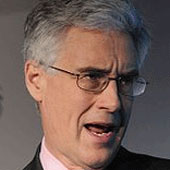Don’t Leave It to the Economists
Why do economists — and the policymakers who heed their advice — need to reconsider the conventional wisdoms of their profession?
August 2, 2012
Keynes famously wrote that “practical men, who believe themselves to be quite exempt from any intellectual influences, are usually the slaves of some defunct economist.”
I suspect however that the greater danger lies not so much with entirely practical men or women exempt from any intellectual influence, as with the reasonably intellectual men and women who are employed in the policymaking departments of central banks, regulatory bodies and governments, as well as in the risk-management departments of banks.
These individuals are often well aware of intellectual influences, but tend nevertheless to gravitate to simplified versions of the dominant beliefs of establishment economists (who are still very much alive).
It is essential to continually seek to lean against that tendency. It is essential that economics deal with the real world as it is — and in particular with human beings as they actually are — rather than assuming the existence of a rational Homo economicus in order to make economic analysis more mathematically tractable.
In my view, robust thinking about economics must be based on the following three requirements.
First, it must not assume that additional income — above a certain level required to satisfy essential human needs — will necessarily increase utility or happiness, even if only to a marginally declining extent. Instead, we should concern ourselves with the mathematically and empirically imprecise but important issues of how happiness, welfare, utility and income are defined and related.
We may only have imperfect and judgmental techniques to measure success against ultimate objectives such as life, satisfaction and happiness. But we need to remember that these objectives, not income maximization by itself, are what we should be trying to achieve.
Second, the new economics must not assume that people participating in financial markets make rational assessments of future probabilities of potential outcomes. Instead, we should seek to understand how different people actually make decisions in different circumstances, given that human brains are endowed with instinctive elements.
Third, the new economics must accept the reality of unavoidable uncertainty. Much of the old-style economics is devoted to exploring the assumed expectations of economic agents, which are believed to be distributed around the objective probability distribution of future outcomes.
That, however, is what is called a philosophical category error, since no probability of future outcomes objectively exists. Therefore, we must accept that all economic and social developments are subject to an inherent, irreducible level of uncertainty.
No mathematical answers
The logical consequence of these requirements is that the new economics should recognize the importance of political, philosophical and ethical issues, to which mathematics is incapable of giving precise answers.
For example, there is no precise answer to the question “What is the optimal degree of inequality?” It is an issue of politics. Likewise, the case for the market economy — which has been predominantly presented in terms of income-maximization outcomes — should, as Amartya Sen says, be considered in terms of freedom as an end in itself.
As John Hicks (although himself a major figure in the development of mathematical and outcomes-oriented economics) has noted wisely, “The liberal principles of the classical ‘Smithian’ or ‘Ricardian’ economists were not, in the first phase, economic principles; they were an application to economics of principles which were thought to apply in a much wider field. The contention that economic freedom made for economic efficiency was no more than a secondary support.”
A major deficiency of the current conventional wisdom is that it has focused increasingly — and almost exclusively — on this secondary support, instead of on ethical, moral and practical considerations. That is all the more surprising since increasing prosperity has made further improvements in economic efficiency less important to human welfare.
“There is nothing in economics,” wrote the British economist Lionel Robbins, “which relieves us of the obligation to choose.”
Too many policymakers and politicians — who at least thought they were drawing on the insights of economists — forgot or chose to ignore that fact in the several decades of applying conventional wisdom and believing in false certainties that led to the financial crisis.
Editor’s note: This article is adapted from Economics After the Crisis: Objectives and Means (MIT Press) by Adair Turner. Published by arrangement with the author. Copyright © 2012 by the Massachusetts Institute of Technology.
Takeaways
It is essential that economics deal with human beings as they actually are rather than assuming the existence of a rational <i>Homo economicus</i>.
The new economics should recognize the importance of political, philosophical and ethical issues, to which mathematics is incapable of giving precise answers.
